- Debrief - The undercover dispatch
- Posts
- How Long Can You Live Undercover?
How Long Can You Live Undercover?
A conversation with Ronald Fino, the Mafia boss’s son turned FBI and CIA undercover operative.
When we think of undercover work, we imagine short stints in disguise – a few perilous months spent pretending to be someone else. But what are the limits of a life built on deception? How long can a person live without a true identity? Ronald Fino might know the answer. He spent most of his life (more than 35 years) living under false identities, infiltrating organized crime groups across dozens of countries. Fino’s story is one of those you will neve get bored of listening to.
Today is Friday, May 16th, and alongside this newsletter, we’re releasing a new episode of Debrief – The Undercover Dispatch Podcast, where you can listen to our conversation with Ron Fino, recorded just days ago:
This issue was written by Sacha and edited by Luigi.
In questo numero di Debrief:
Dragon Ball
If I remember correctly, in the cartoon Dragon Ball, when Goku fights against other characters, his energy grows because he absorbs it from his opponents during the fight. I like to think something similar happens when we interview people who've led extraordinary lives: somehow, their energy transfers into us as well.
Every time I've heard Ron Fino’s story, I've had exactly that feeling—as if his experiences, his incredible life, were recharging me. Let’s make one thing clear: Ron isn’t a journalist. And it’s right that these two worlds remain separate because the intentions of a journalist differ entirely from those of a police officer or an FBI and CIA operative like Ron. The role of journalists isn't to get people arrested.
Nevertheless, I wanted to invite Ron to our newsletter, not only because he has so much to teach anyone interested in undercover work—journalists or otherwise—but also because I believe Ron has pushed beyond every imaginable human limit regarding how long one can live undercover.
A Life in Disguise
“Once I realized… they don’t care about the innocent people… I always felt for the workers, innocent guys,” Fino told me, explaining why he betrayed the Mafia for the FBI. It was an unlikely defection. Ronald Fino was born into the mob – his father was a caporegime (captain) in the Buffalo Mafia – yet as a teenager in the late 1960s, Fino made a fateful choice. He ran for business manager of his local labor union on an anti-corruption platform, determined to stop the mob from bleeding dry the union’s members. In his 20s’, he secretly began feeding information to FBI agents about the mobsters who trusted him as one of their own. What started as a youthful act of conscience became a covert calling that would consume his life.
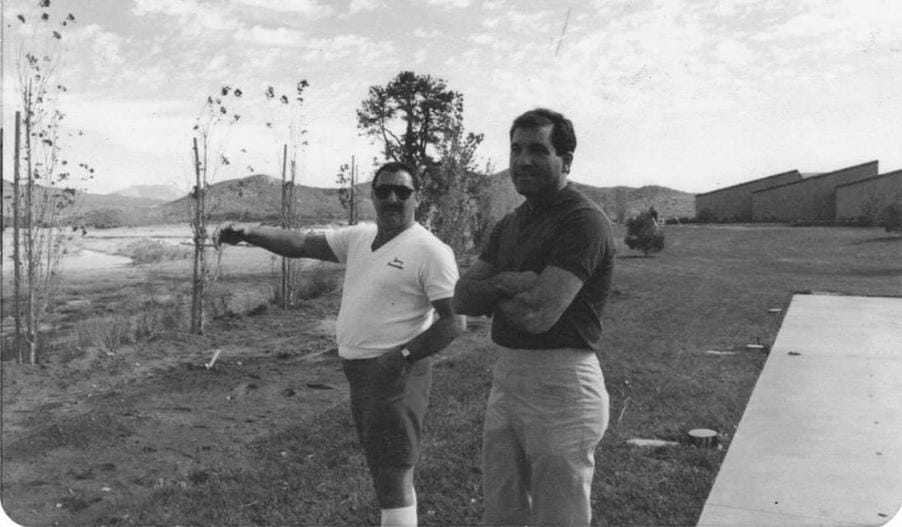
Dan Sansanese Jr. (left), Ron
From the gritty union halls of Buffalo to far-flung conflict zones, Fino led a chameleon’s existence. In the 1970s and ’80s, his day job as a union boss – and his blood ties to the Mafia – were the perfect cover for infiltrating La Cosa Nostra. Mobsters saw young Ron Fino as a loyal insider. He never wore a wire in those early years (too risky if discovered) – instead memorizing conversations and surreptitiously passing intel to his FBI. His Mafia pedigree often shielded him. He remembers one close call when a suspicious mob soldier moved to frisk him, checking for a recording device. Fino exploded in mock outrage, playing the offended Mafia prince – and the would-be frisker backed off out of respect for Fino’s feared father.
Fino was willing to push the deception to daring extremes. At one point, to protect his cover, he even stood in court and pleaded guilty to a crime he hadn’t committed. It was a staged misdemeanor charge – arranged quietly with a judge and the Justice Department – intended to make him look like just another corrupt union official rather than an informant. The ruse worked: after the conviction, underworld figures believed Fino was truly one of them. Feigning criminality was a small price to pay to avoid blowing his cover.
After his Mafia informant days in Buffalo, Fino didn’t retire his undercover persona – he expanded it globally. In the 1990s, the FBI and CIA sent him overseas to penetrate international crime rings. He posed as an illicit arms broker, a commodities trader, a fixer – whatever false role the mission required. He met with Russian mobsters in Moscow and Minsk, negotiating black-market weapons deals. He slipped into Middle Eastern backrooms, cozying up to terrorist-linked arms suppliers while posing as a buyer. His clandestine work even intersected with geopolitics: at one point Fino attempted to broker a peace deal during a coup d’état in The Gambia as part of his cover, illustrating just how deeply he inserted himself into affairs of state. By his own account, he traveled “around the world three times” on covert assignments. Each new operation tested the limits of his fabricated identities – and of Fino’s own endurance living under constant deception.
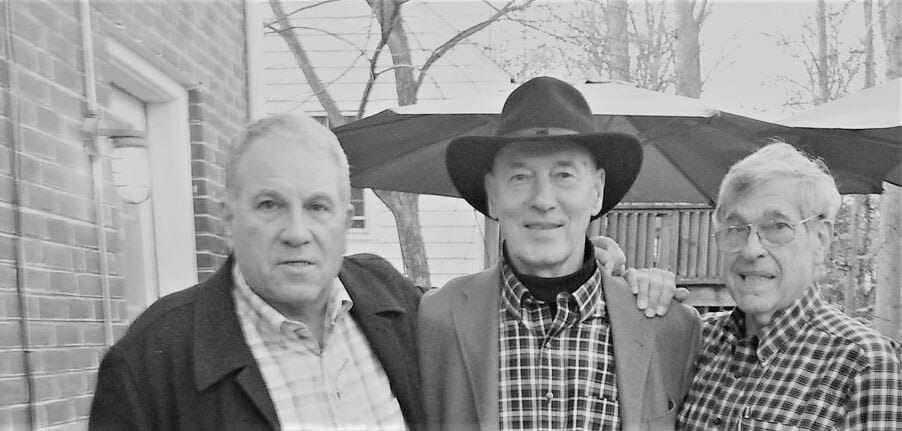
Ron with KGB Officer Gennady Vasalinko (middel) and CIA officer Jack Platt
How long could he continue to be someone else? Longer than anyone would have imagined.
Out of the Shadows
“You never have a normal life… that never disappears… If I had a normal life, I’d be out gardening,” Fino admitted, reflecting on the toll of his undercover years. After decades in the shadows, coming back to ordinary life was anything but ordinary. In January 1989, Fino’s double life finally caught up with him. The Buffalo Mafia discovered his betrayal – and put out a contract to kill him. A trusted contact alerted Fino that his own Mafia “friends” had decided to whack him for being a snitch. That very night, he fled Buffalo with just the clothes on his back. Under FBI protection, Fino vanished from the world he knew, leaving behind his home, his job, and even his family. “Forced to uproot my life and leave my friends, my loved ones, and the only way of life I knew,” is how he later described that moment. The Bureau gave him a new identity and shuffled him between safe houses and military bases, where hitmen couldn’t easily find him.
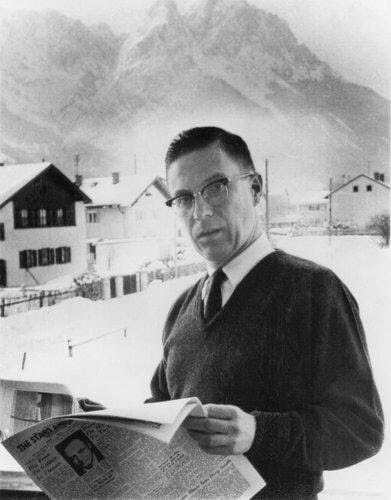
Ron's mentor, Dick Stolz, CIA
This abrupt exile plunged Fino into an emotional tailspin. After years of high-adrenaline undercover work, the sudden isolation hit hard – he fell into months of depression and confusion, grappling with the loneliness and fear that now defined his days. The personal costs of his long masquerade became painfully clear. Fino had a wife and children in Buffalo, but now he could barely risk contacting them. “Do I say I like seeing my children once a year, if I’m lucky?” he later lamented, highlighting how infrequently he was able to be with his family while assassins might be on his trail. Even mundane pleasures were lost to him – for years, he couldn’t walk down a street or grab a coffee in public without looking over his shoulder. He lived every day with the knowledge that a vengeful mobster might be hunting him.
On top of the physical danger was a crushing social stigma. Within the insular Mafia world, nothing is despised more than a traitor. When Fino’s cooperation became public, many of his old friends, colleagues, and even relatives turned their backs on him. People he had known his whole life now saw him as a pariah for betraying the mob’s code of silence. It didn’t matter that he had done it to protect innocent people – in their eyes, he was a turncoat. Fino understood that some union members shunned him out of fear (anyone close to him could be suspect to the mob), but it still hurt deeply. He had sacrificed everything to do what he felt was right, and in the end found himself ostracized and alone. “I was deserted and thought of as a pariah,” he said of those years.
Eventually, the Mafia’s fury cooled and the FBI saw fit to let Fino resume a semblance of normal life. By the late 1990s, they told him his undercover services were no longer needed and effectively cut him loose. But starting over was its own challenge. Fino now lived under an invented name with virtually no past – at least none he could disclose. He struggled to find legitimate work because he had no real résumé he could show an. How to explain the past 25 years of one’s life when most of it was classified or spent in deep cover? “A new name was not good enough to find employment,” he later wrote; the fake identity had “virtually no history to rely upon”.
Mr. Undercover
Fino managed to find balance by working as a private investigator and recounting his story in a memoir with a title that leaves no room for misunderstanding: Mr. Undercover, a title that, from the vantage point of our newsletter, we feel he has earned.
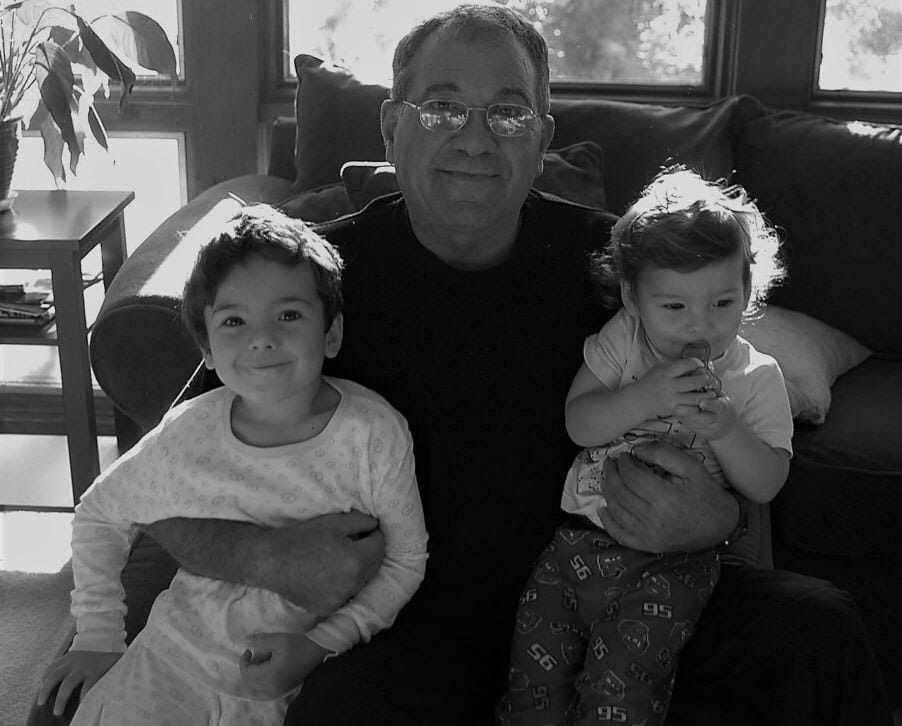
Ron enjoying a visit with his grandchildren
Today, Ronald Fino is in his seventies and finally able to speak openly about his undercover exploits, obviously without entering too much in detail. Soft-spoken and wry, he jokes that he’s “still broke” because he never made money off the mob – he did it out of principle. “I’d rather be that way than take my buddy’s money,” he says of his humble retirement. Yet the old habits die hard. He remains cautious and vigilant, always sizing people up. The shadow of his former life never fully leaves. “You never have a normal life,” he told me, shaking his head. The memories and scars of decades undercover stay with him, forever.
A school of undercover
Fino’s undercover career spanned nearly four decades. To avoid tripping up, he learned a crucial rule of long-term deception: “You have to stay as close to the truth as possible, because everybody screws up,” Fino noted. In other words, the more his undercover alias shared with his real self, the less likely he’d slip and reveal the lie. Maintaining that fragile illusion for so many years required constant vigilance. Fino compares the experience to combat: you suppress your fear in the moment and “later on, when you’re all alone… you may shake,” he said. “It’s like a soldier in combat – you do what you have to do, and then later on you… shake”.
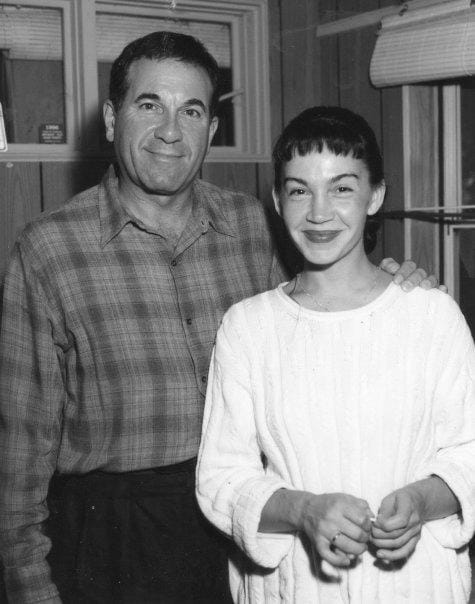
Ron with his wife Alla in Minsk, Belarus
Interestingly, he admires journalists who go undercover to expose wrongdoing, but he warns them to tread carefully. “Journalists get killed. You see what happens. A lot of journalists are killed by these people if they step too far,” Fino cautioned. Unlike an FBI operative, a reporter has no badge or agency to rescue them if things go south. His advice to investigative journalists who choose subterfuge is to minimize the lies. Deception is a dangerous game, so play it sparingly and never lose sight of the truth.
Ronald Fino’s saga is one of extremes – a son of the Mafia who became one of the FBI’s most invaluable undercover assets. His record-breaking undercover odyssey tested the limits of loyalty, identity, and endurance.
Fino’s life in disguise may be unique, but the questions it raises – about how far we’d go to do what’s right, and what price we’re willing to pay – are universal.
And if you’d like to hear Ronald Fino recount his experiences in his own words, don’t miss our full conversation on this week’s podcast:
Until the next Debrief,
Luigi & Sacha
If you have suggestions, questions, tips (or insults), drop us a line at::
👉 [email protected]
If you enjoyed this newsletter, pass it along to your friends using this link:
👉 https://debrief-newsletter.beehiiv.com/
Follow us on Instagram, occasionally we'll upload content different from the newsletter:
👉 https://www.instagram.com/debrief_undercover/
We've also launched a podcast featuring interviews with the authors of memorable undercover investigations:
👉 https://open.spotify.com/show
And if that's still not enough, join our Telegram channel, where we can keep the conversation going:
👉 https://t.me/debrief_undercover

Reply